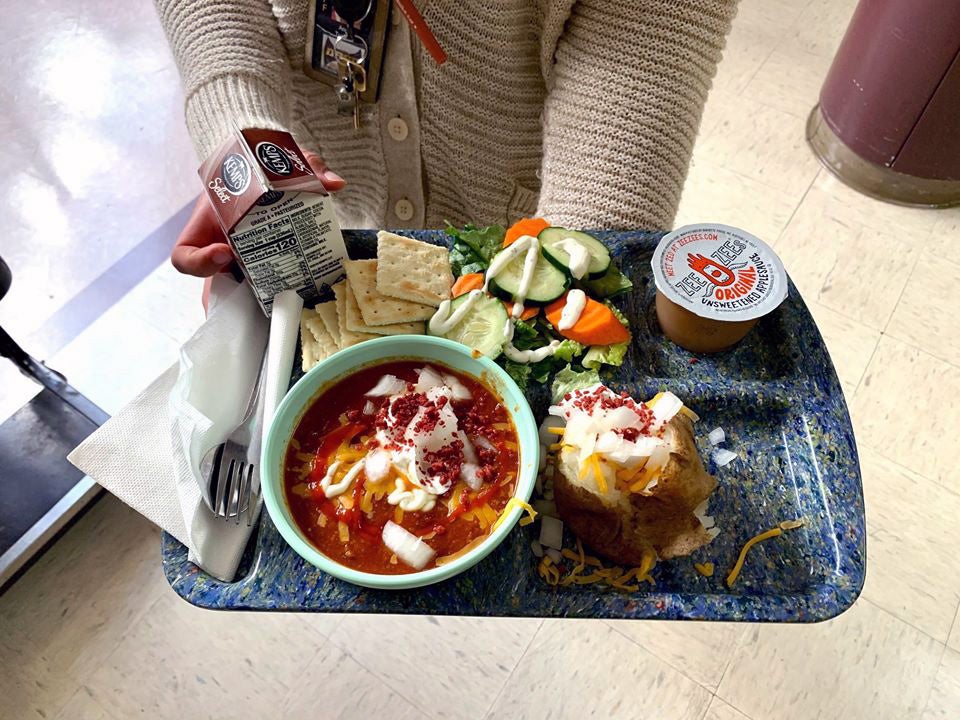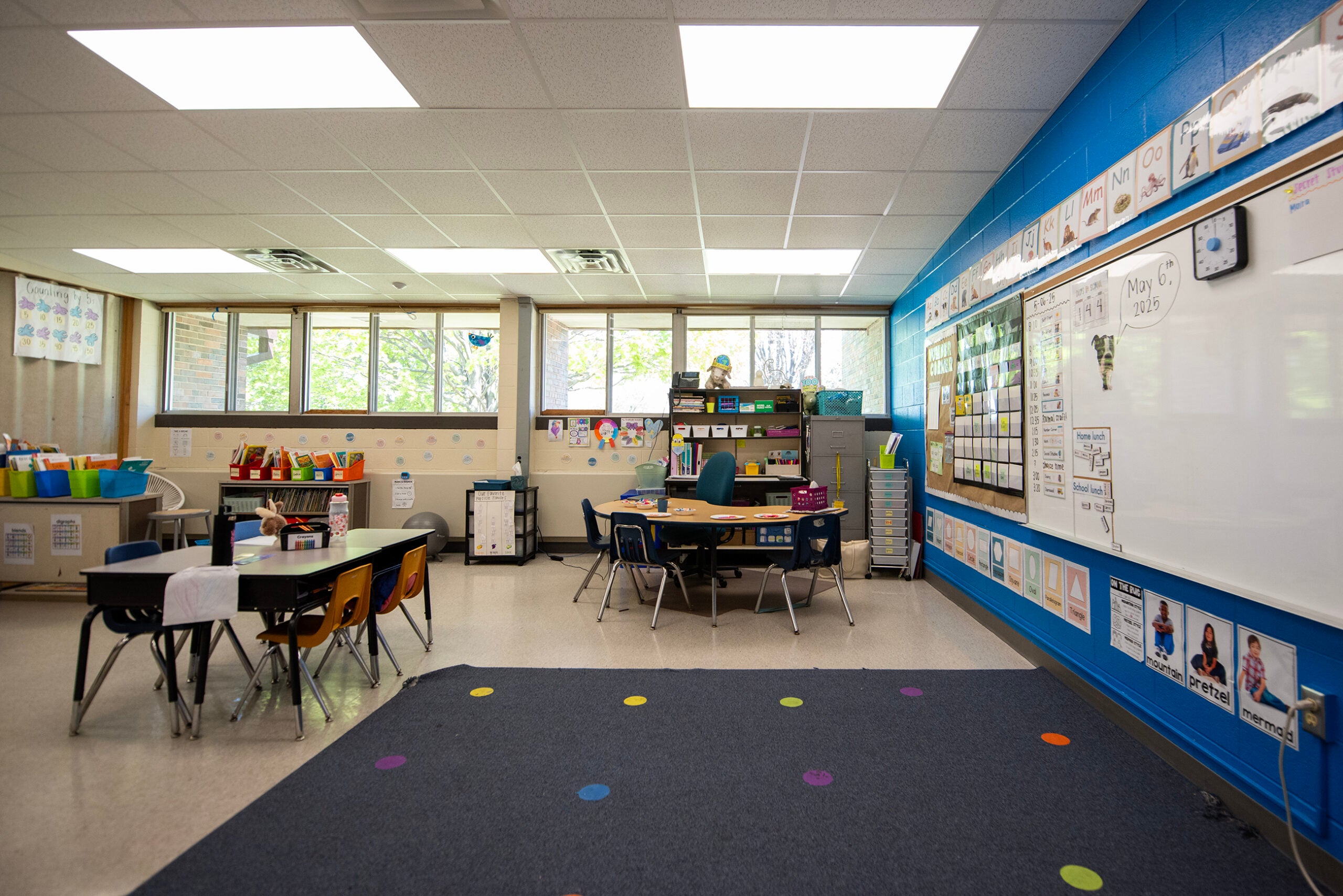Last year, Beloit director of food and nutrition Dawn Smith got a call from one of the high schools telling her that the chicken nuggets they’d prepared that day were the worst they’d ever tasted.
“I thought, it’s got to be a preparation issue, and I went out and said ‘Oh my god,’ and they were like, ‘Yeah, they subbed these out and they’re horrible,’” she recalled.
The Beloit school district was repeatedly squeezed by shortages over the last two school years. When avian flu jeopardized chicken products, chicken nuggets and patties — as well as eggs — were in short supply. That led to poor substitutions from their suppliers like the subpar nuggets or a last-minute switch to mac and cheese or burgers. Beef, too, was in short supply for a while.
News with a little more humanity
WPR’s “Wisconsin Today” newsletter keeps you connected to the state you love without feeling overwhelmed. No paywall. No agenda. No corporate filter.
“Then, believe it or not in Wisconsin, cheese was probably the thing that hurt us the most, because there was a milk shortage — a couple milk companies shut down in Wisconsin,” Smith said. “Because of the requirements that you need for National School Lunch, cheese and milk hit us the hardest.”
Every day during the school year, school food service programs prepare breakfast and lunch for students, adhering to federally-mandated nutritional guidelines to create meals that appeal to kids and accommodate dietary restrictions and allergies. A lot of things can go wrong during the best of times — equipment failure, transportation issues, staff absences — but the pandemic, and its resulting supply chain strains, have increased the challenges over the past two years.
Things have gone a little more smoothly at the Stevens Point Area School District, said food service manager Lori Epstein. Costs have increased as inflation has driven up food and gas prices, but Epstein said the district’s existing contract with food supplier Chartwells has kept price hikes at a manageable level. Shortages in some areas have also led to some menu changes in Stevens Point, though she said without disastrous consequences so far.
“Throughout the last school year, we’ve had some substitutions, but pretty much a similar product, so I’m hoping for the best (next year),” said Epstein. “I know we’ll have some challenges.”
Other school districts have seen issues, as well. The state’s second-largest school district, in Madison, has struggled at times to get enough food to adequately feed their students, let alone to meet their nutritional needs.
Staffing school kitchens has been an issue as well. Epstein said Stevens Point started the school year short-staffed, but was in a better place by the end of the year. Still, she said, they had to lean heavily on substitutes throughout the year as COVID-19 exposures and cases, as well as family needs, rippled through Point’s staff.
At one point last school year, when Beloit students were still learning from home, the entire food service staff was exposed to COVID-19, Smith recalled. They had to have the food prepared in Chicago and delivered to the area on semi trucks, packed into boxes for each family containing multiple days’ worth of food.
“We had to have all our neighboring friends — Racine, Fond du Lac, Oshkosh — I mean, we had all kinds of school districts come down and deliver food for us,” she said. “Everybody really pulled together to get that out.”
There was a while when Beloit’s food distributor, Aramark, would call Smith nearly every day to let her know the menu had to change because something wasn’t available. They usually came up with substitutes, but Smith said she had to vet them carefully to make sure they didn’t contain allergens — Smith said Beloit serves about 72 kids with severe food allergies.
“You don’t know until that truck arrives at your back door, and that was hard,” she said. “You always have to have something in your back pocket.”
President Joe Biden signed an extension for several pandemic waivers to school lunch requirements over the weekend, including measures to allow meal deliveries and grab-and-go options through the end of the summer; and higher federal reimbursement rates and supply chain flexibility through the end of next school year. It did not extend the pandemic program to make school lunches free for all, instead of only those who qualify based on income.
“Am I a little concerned? Yes,” said Epstein. “But I do think, working with (suppliers and the federal government), we should be OK.”
Wisconsin Public Radio, © Copyright 2025, Board of Regents of the University of Wisconsin System and Wisconsin Educational Communications Board.







